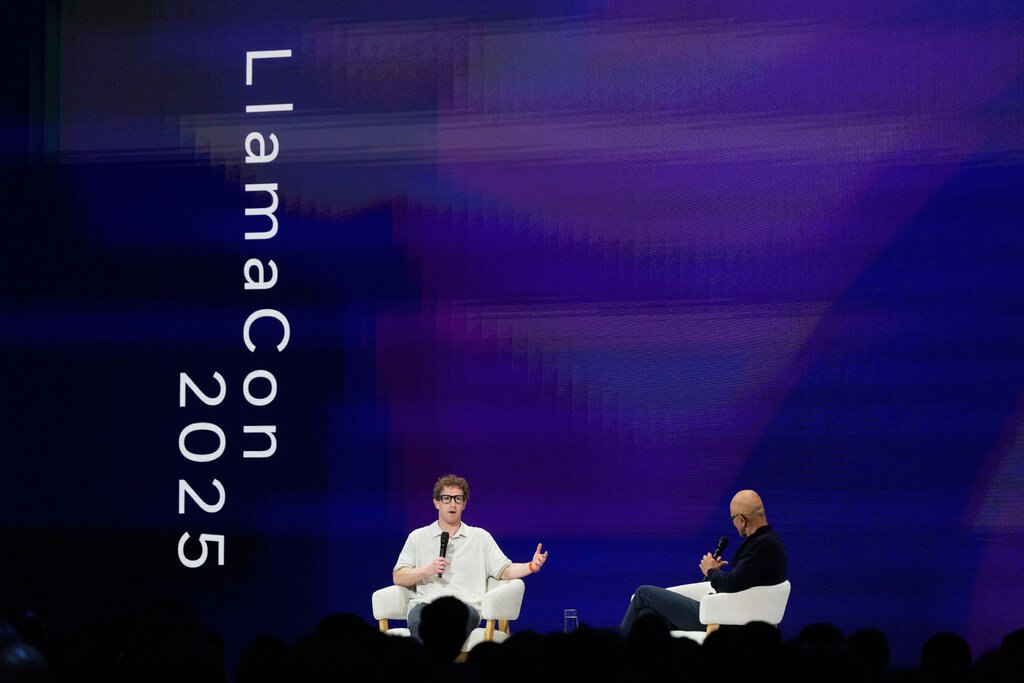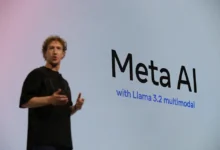Why Meta’s Pivot to AI Could End Its Open-Source Era and Disrupt the AI Race
As Mark Zuckerberg builds out Meta’s next chapter, top executives are considering a future where AI is no longer shared but guarded.

For years, Meta’s big bet was virtual reality. With the 2021 rebrand from Facebook to Meta, Mark Zuckerberg envisioned a world built around avatars, immersive headsets, and digital spaces. But four years later, that future feels on hold.
Now, Meta is placing its biggest bet yet on something else entirely: artificial intelligence.
In 2025, the company’s internal compass is swinging hard toward advanced AI. And it’s not just about keeping up with OpenAI or Google anymore—it’s about building something bigger, deeper, and potentially much more powerful. This isn’t just a shift in tools; it’s a shift in philosophy.
Meta’s AI Ambitions Just Got Personal
In recent months, Meta has gone all-in on AI infrastructure. The company:
- Launched Llama 3, its most advanced open-weight AI model to date.
- Invested $14.3 billion in Scale AI, a startup led by Alexandr Wang—who is now Meta’s Chief AI Officer.
- Formed a new Superintelligence Lab, staffed with top researchers poached from DeepMind, OpenAI, and Anthropic.
- Rolled out Meta AI across WhatsApp, Instagram, and Facebook, embedding real-time AI directly into daily communication tools.
But now, the boldest turn might be philosophical.
According to internal discussions, Meta’s AI leadership—including Wang—has been exploring the idea of abandoning its open-source approach. The lab’s current model, called Behemoth, is its most powerful open-weight model yet. But insiders say leadership is considering shifting to a closed model—a dramatic change for a company that’s long championed open development.
What Would Closing AI Mean?
If Meta walks away from open-source AI, it would mark a fundamental pivot. The company has spent years arguing that open models democratize innovation, speed up research, and make AI safer by enabling transparency. Llama 2 and Llama 3 were released with fanfare precisely because they were open.
Closing off future models would put Meta on a collision course with its past—and align it more with rivals like OpenAI and Anthropic, who’ve locked down their most powerful systems.
For Alexandr Wang, the 28-year-old founder of Scale AI, this move could redefine Meta’s position in the AI arms race. He’s built his reputation on speeding up AI development at scale, and now he has Zuckerberg’s backing to reshape Meta’s long-term strategy—potentially away from open ideals and toward competitive secrecy.
Is the Metaverse Dead? Not Quite. But It’s Not Driving the Bus
Meta’s virtual world dreams aren’t gone. The company still sells its Quest headsets and develops Horizon Worlds. But internally and publicly, those ambitions are no longer front and center.
The Superintelligence Lab—not Reality Labs—is now Meta’s crown jewel. The metaverse may still exist, but AI is the new engine.
This is a company that wants to control how intelligence itself is built, trained, and delivered to billions. That’s bigger than virtual hangouts or even content feeds.
Why It Matters in Kenya—and Everywhere Else
For users across Kenya and much of the Global South, Meta’s AI evolution isn’t abstract. It’s already happening. Meta AI tools are being tested in WhatsApp, helping small businesses and customer support services. Content recommendations across Instagram and Facebook are increasingly guided by these new systems.
A move to closed AI systems could affect transparency, accessibility, and control. Who decides what these systems know? Who trains them? And what happens when they’re embedded into tools that shape conversation, culture, and commerce?
This isn’t just a Silicon Valley story. It’s a global infrastructure shift—and everyone’s downstream.
The Quiet Power Grab Behind Meta’s AI Glow-Up
Mark Zuckerberg’s second act isn’t loud. It’s structured. While Meta still projects an image of openness, the internal strategy may be moving toward a walled-garden approach. The company no longer wants to just build tools—it wants to own the cognitive infrastructure of the internet.
The appointment of Alexandr Wang, the massive bet on Scale AI, and the potential shuttering of open-source AI models signal a new, more aggressive Meta.
The era of legless avatars is over.
What comes next may be even harder to see—but much harder to ignore.
Mark your calendars! TechTrends Pulse lands in Nairobi this August! Join top tech leaders, innovators & AI experts for a half-day of keynotes, showcases & sharp insights on business transformation. RSVP now -limited slots available! Register here.
Follow us on WhatsApp, Telegram, Twitter, and Facebook, or subscribe to our weekly newsletter to ensure you don’t miss out on any future updates. Send tips to editorial@techtrendsmedia.co.ke


